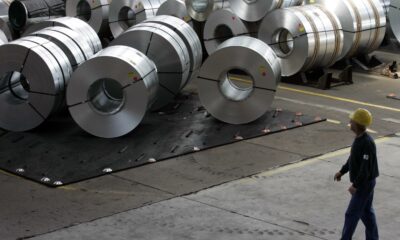News
The Paycheck Paradox: Why Your Salary Raise Doesn’t Feel Like One

Follow Joburg ETC on Facebook, Twitter , TikTok and Instagram
For more News in Johannesburg, visit joburgetc.com
Published
3 months agoon

Here’s a economic puzzle for you: the numbers say the average South African’s take-home pay is going up, yet the collective mood around kitchen tables and office coffee stations remains one of financial strain. The latest data confirms this isn’t just a feelingit’s a complex economic reality where averages hide more than they reveal.
The PayInc Net Salary Index, which tracks the earnings of approximately 2.1 million people, reached R21,428 in September. This marks the sixth consecutive monthly increase, with salaries up 2.3% compared to a year ago. For the first nine months of 2025, average net salaries have risen 4.3%.
So, where’s the disconnect? The answer lies in the shadow cast by two formidable giants: mass unemployment and structural inequality.
While the headline salary figures are positive, independent economist Elize Kruger quickly brings the conversation back to earth. “The official unemployment rate remains stuck at around 33%,” she notes.
This is the core of the paradox. The economy, at its current sluggish growth rate, is simply not creating enough new jobs to absorb the hundreds of thousands of people entering the job market each year. A salary increase for those who are employed does nothing for the one in three working-age South Africans who have no income at all. This creates a pervasive sense of insecurity that affects everyone, even those receiving raises.
Even for those with jobs, the picture is nuanced. While nominal salaries are up, real wages (adjusted for inflation) have actually been below year-ago levels for three months straight. Investec chief economist Annabel Bishop cautions that “the distorting effects of inflation give a false picture on the consumers purchasing power.”
Essentially, if your salary increases by 4% but the cost of your grocery basket, fuel, and utilities goes up by 3.1%, your real gain is a meager 0.9%. This minimal growth is quickly eroded by unexpected expenses.
Furthermore, Kruger points out that for salary increases to be sustainable and meaningful, they must be matched by growth in productivity. Without it, these raises can contribute to inflationary pressures, creating a cycle that ultimately diminishes their value.
Perhaps the most telling insight comes from the Bureau of Market Research (BMR), which highlights a profound shift in what drives wealth. Their research shows that while education is still crucial for securing a good job, it is no longer the primary predictor of income growth.
Instead, age and asset exposureowning investments or propertynow matter more. A startling statistic reveals that just 3% of adults, who rely on investments or pensions as their main income, captured nearly a third of the total rand increase in income over the last decade.
This means the wealth gap is not just between the employed and unemployed; it’s also widening between salaried workers and the asset-owning class. Younger workers, even with tertiary qualifications, face weak wage growth, unable to accumulate the assets that would truly accelerate their financial standing.
The conclusion is sobering. The positive salary data is a welcome tailwind for a portion of the population, but it’s happening within a system where true financial progress remains out of reach for millions. Until the economy can generate mass employment and until productivity-driven growth takes hold, the disconnect between the data and the daily reality will persist.
{Source: IOL}
Follow Joburg ETC on Facebook, Twitter , TikTok and Instagram
For more News in Johannesburg, visit joburgetc.com


South Africa’s economy posts its longest growth streak since 2018


“Within a Year”: S&P Signals Possible Ratings Upgrade for South Africa on Reform Momentum


Why Trump Isn’t Panicking About The Slumping Dollar


The R20bn Vote of Confidence: Inside SA’s Overhauled Transformation Fund


Ramaphosa says South Africa is recovering, but warns there’s no room for complacency


Is saving Amsa worth the cost? South Africa’s steel dilemma deepens















